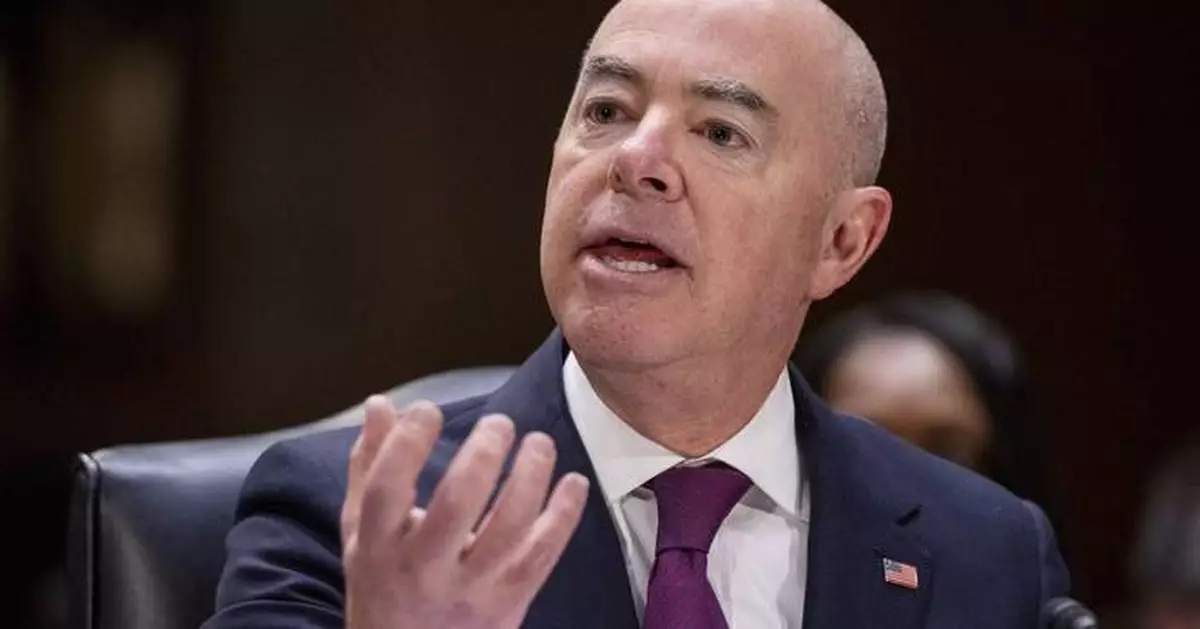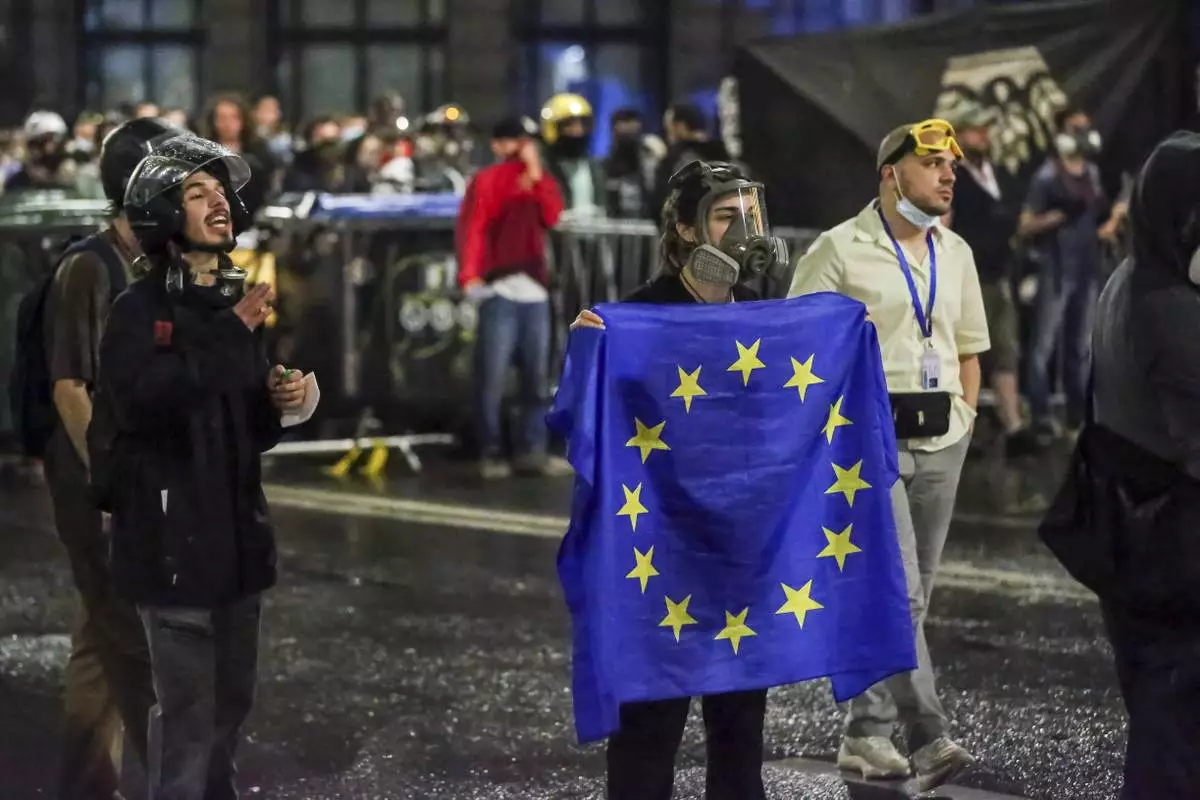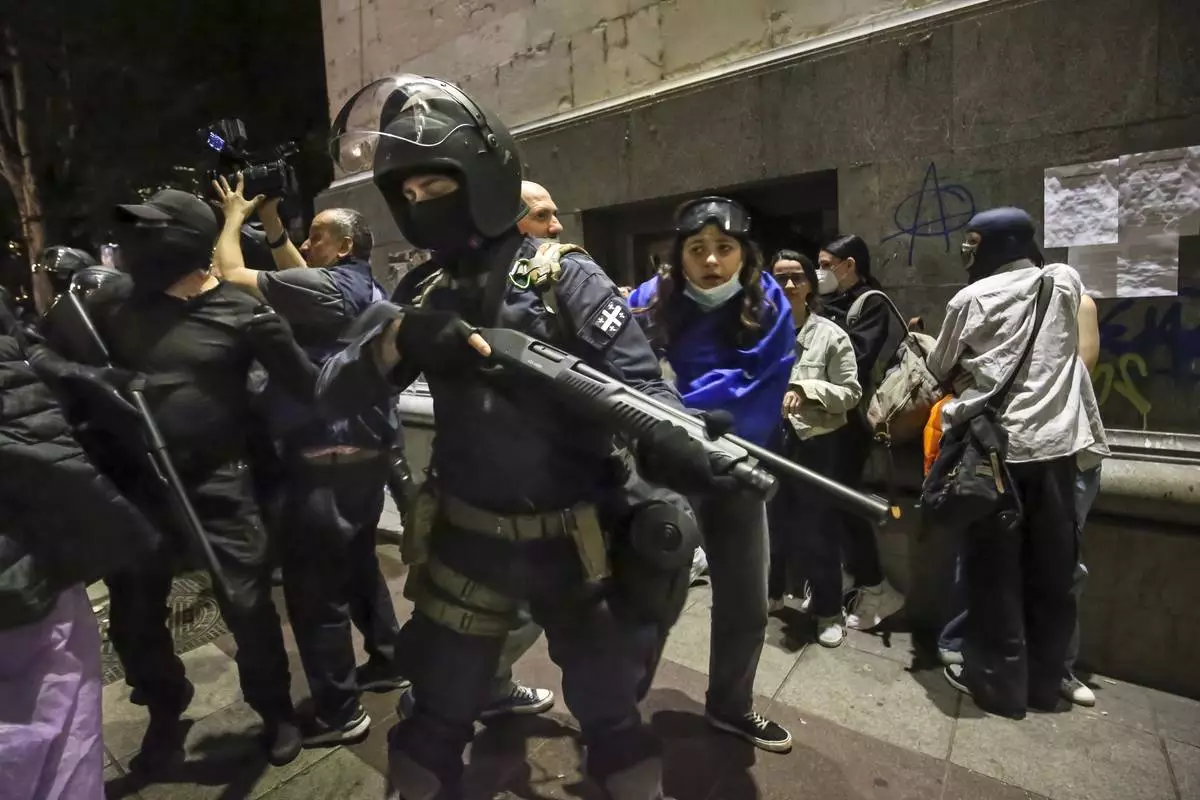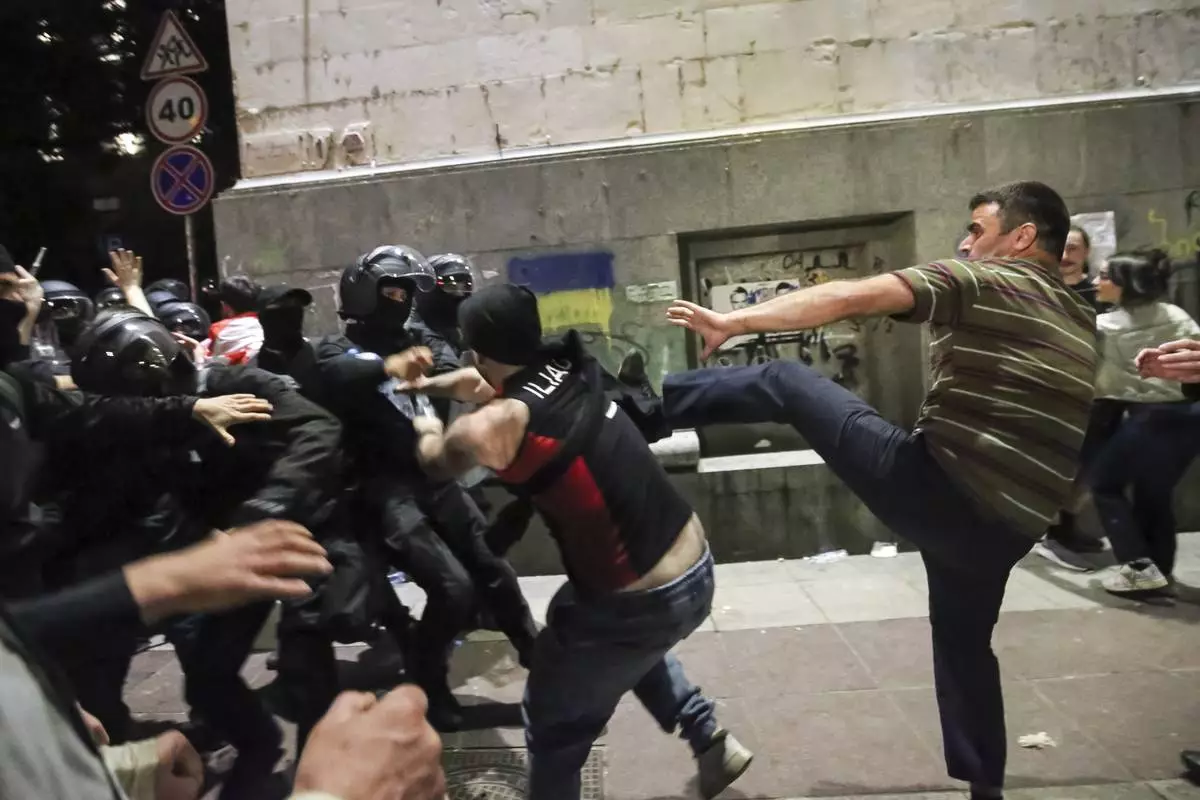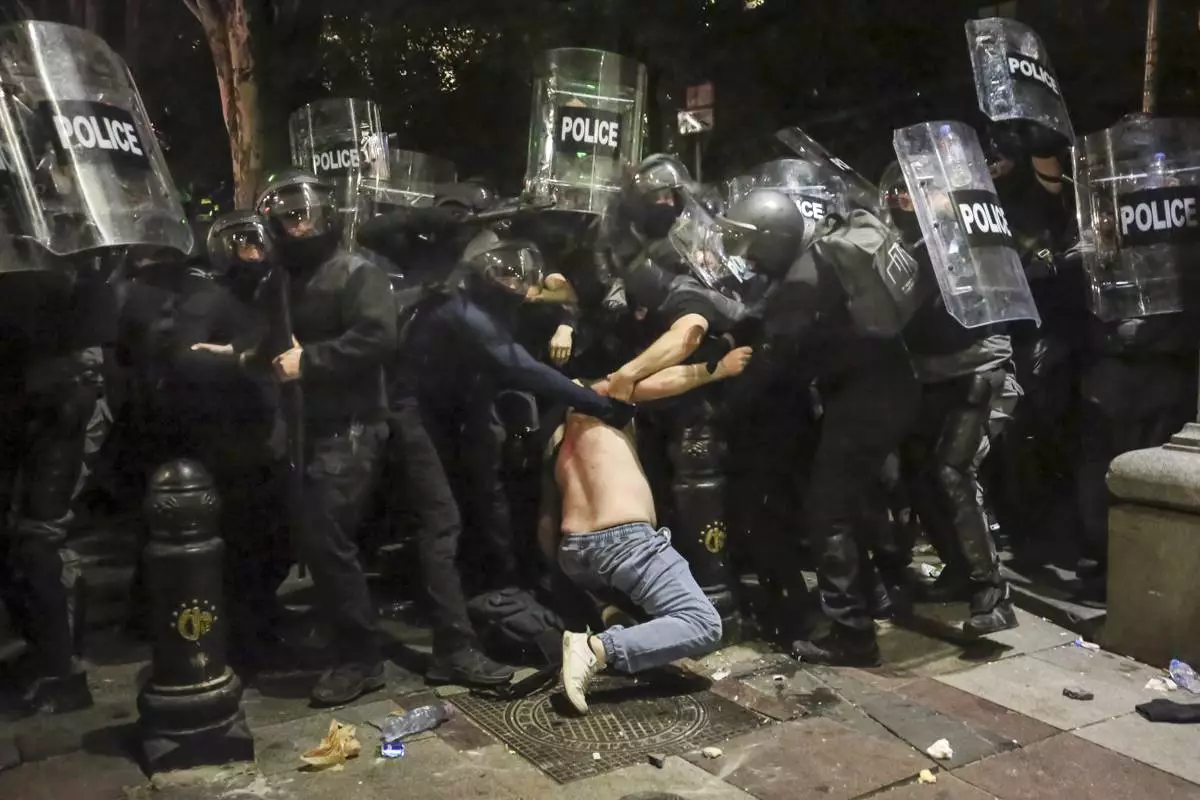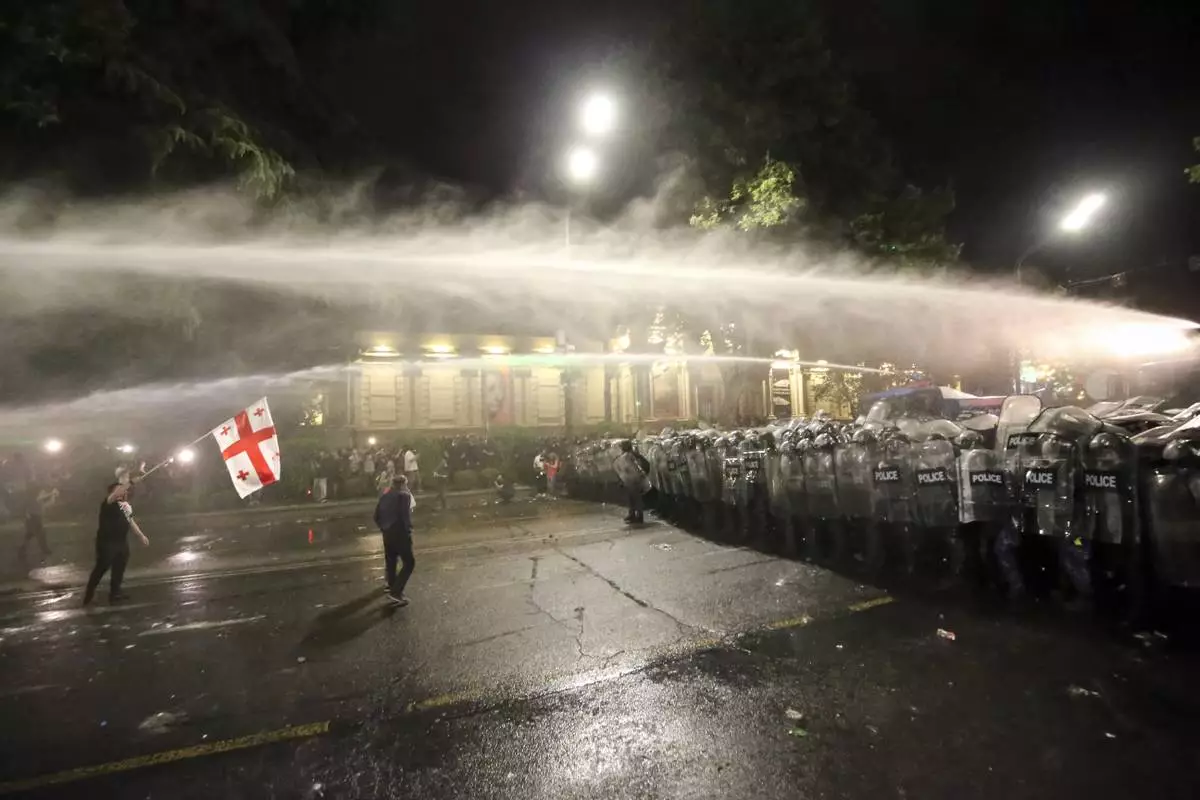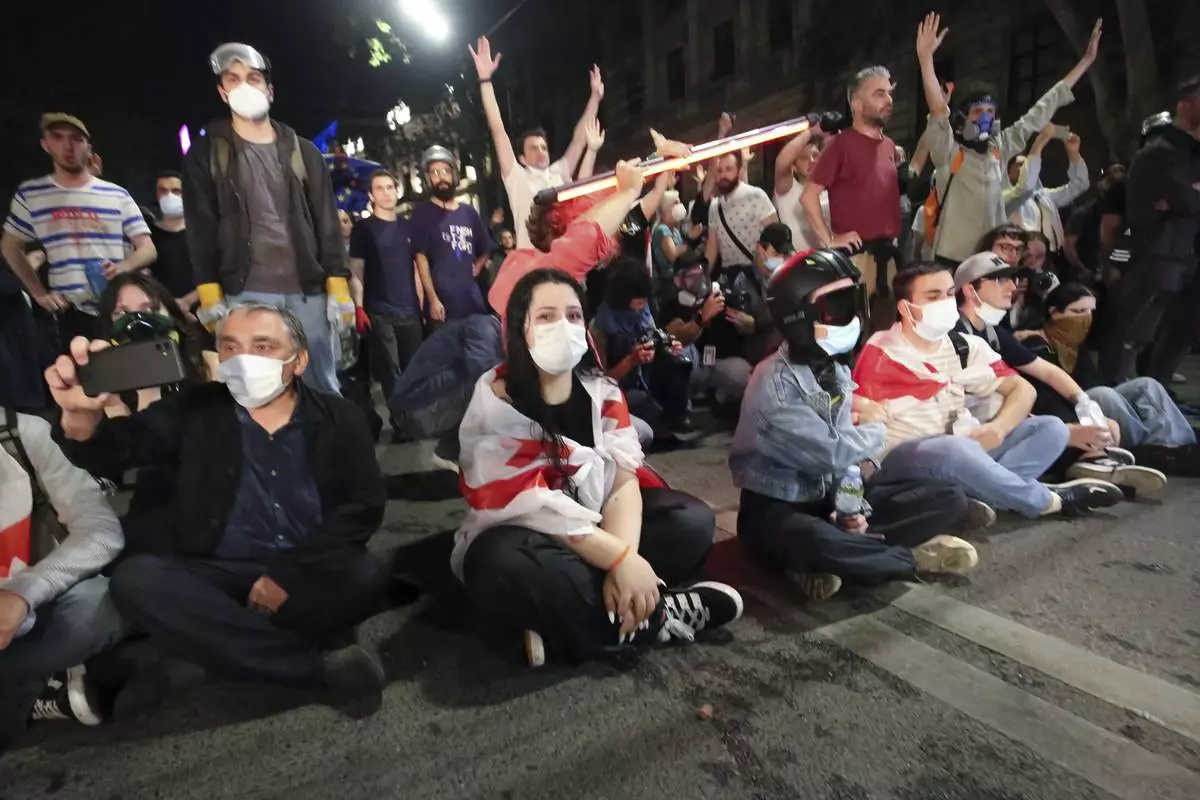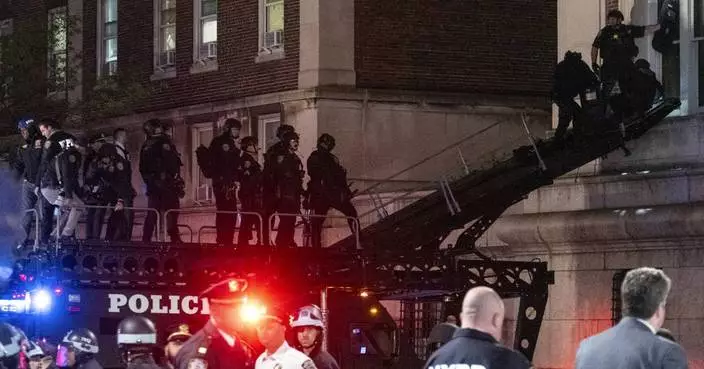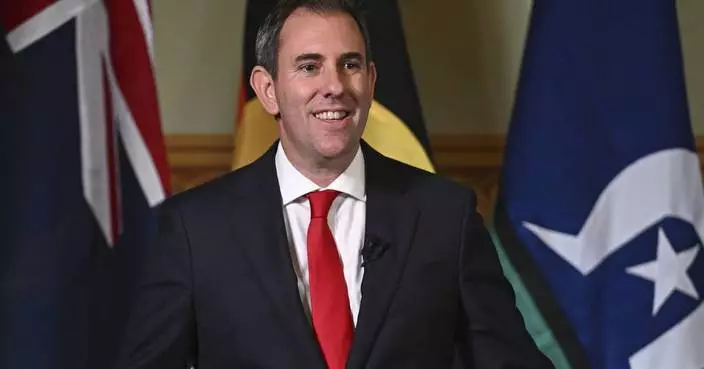WASHINGTON (AP) — House Republicans will bring their case against Alejandro Mayorkas to the Senate this week, two months after impeaching the Homeland Security secretary. It will be the third time in five years that senators are sworn in as jurors in the court of impeachment.
The Republican-controlled House impeached Mayorkas by a single vote margin on Feb. 13, recommending that Mayorkas be removed from office over his handling of the U.S.-Mexico border. With two articles of impeachment, the House charges that Mayorkas has “willfully and systematically” refused to enforce existing immigration laws and breached the public trust by lying to Congress and saying the border was secure.
After holding back for several weeks, House Speaker Mike Johnson said at the end of March that he would send the two articles to the Senate on April 10.
Unlike former President Donald Trump’s two impeachment trials in 2020 and 2021, though, the Senate isn’t expected to spend much time considering the charges. Democrats who hold the Senate majority appear to have the votes to immediately dismiss the trial, though Majority Leader Chuck Schumer, D-N.Y., hasn’t yet said what he plans to do.
Democrats say the charges against Mayorkas amount to a policy dispute, not the “high crimes and misdemeanors” laid out as a bar for impeachment in the Constitution.
Johnson and Senate Republicans are pushing Schumer to hold a full trial. “If he cares about the Constitution and ending the devastation caused by Biden’s border catastrophe, Senator Schumer will quickly schedule a full public trial and hear the arguments put forth by our impeachment managers,” Johnson said in a statement.
The House’s 214-213 impeachment vote in February, a narrowly successful second try after the House had rejected the effort a week earlier, was the first time in nearly 150 years a Cabinet secretary had been impeached. And while the Senate is now obligated to consider the charges, two-thirds of the chamber would have to vote to convict him. Not a single Democrat has signaled support for the impeachment push.
Still, there is a process that senators have to follow under the rules for impeachment. A look at the Senate’s next steps:
Under impeachment rules, a group of House managers — members who act as prosecutors and are appointed by the speaker — will deliver the impeachment charges by reading the articles on the Senate floor, usually after making a ceremonial walk across the Capitol with the articles in hand. Johnson has said that will happen on Wednesday.
Senators are expected to be sworn in as jurors on Thursday, Schumer said in a letter to his colleagues on Friday. The Senate must then issue a summons to Mayorkas to inform him of the charges and ask for a written answer. But he would not have to appear in the Senate at any point.
The president pro tempore of the Senate, Washington Sen. Patty Murray, will preside. She holds that role as the most senior member of the majority party.
What happens after the Senate jurors are sworn in is less clear. The rules generally allow the Senate to decide how to proceed.
If Schumer can muster a simple majority, Democrats could dismiss the trial outright or move to table the two impeachment articles, ending the House’s effort and allowing the Senate to move on to other business.
While Schumer hasn’t yet revealed his plans, he is expected to try and dismiss the trial in some manner, if he has the votes. Democrats control the Senate, 51-49.
Getting to 51 votes would require every single Democrat and the chamber’s three Independents to vote to dismiss, or potentially fewer if any Republicans join them. So far, no Democrats or Independents have expressed support for moving ahead with an impeachment trial.
In his letter to colleagues Friday, Schumer told senators that their presence is “essential” when they will be sworn in as jurors Thursday — hinting that there may be a close vote held that day.
While several GOP senators have questioned the need for a trial, it’s unclear whether any of them would go as far as to vote to dismiss the charges right at the start. One possibility is Utah Sen. Mitt Romney, who said earlier this year that he would be inclined to vote with Democrats if they hold a vote to dismiss.
Senate Republican leader Mitch McConnell of Kentucky predicted last week at an event in his home state of Kentucky that Schumer will file a motion to dismiss or table the charges.
“The Democrats have the majority so it may not go on very long,” McConnell said. “My preference would be to actually have a trial but I think the majority’s likely to prevent that.”
If Democrats are not able to dismiss the trial or table the articles, there is a second option: They could follow the precedent of several impeachment trials for federal judges over the last century and hold a vote to create a trial committee that would investigate the charges.
While there are no hard rules on how to form a trial committee, the Senate has previously passed a resolution authorizing the party leaders to each recommend six senators and a chairperson to run it. Those committees had the ability to call witnesses and issue final reports to the Senate ahead of eventual trials.
While there is sufficient precedent for this approach, Democrats are likely to try and avoid it if they can halt the process completely, especially in a presidential election year where immigration and border security are top issues.
Echoing Trump’s defense during his impeachments, Schumer has called the House effort a “sham.”
“House Republicans failed to produce any evidence that Secretary Mayorkas has committed any crime,” Schumer said shortly after the House voted to impeach him. “House Republicans failed to show he has violated the Constitution. House Republicans failed to present any evidence of anything resembling an impeachable offense.”
If the Senate were to proceed to a trial, senators would be forced to sit in their seats for the duration, maybe weeks, while the House impeachment managers and lawyers representing Mayorkas make their cases. The Senate is allowed to call witnesses, as well, if it so decides. Senators also have an opportunity to question the two sides before a final vote on whether to convict.
In a February letter led by Utah Sen. Mike Lee, 13 Senate Republicans argued that a trial is necessary, writing that Democrats should not be able to “shirk their Constitutional duty.”
At a briefing with reporters on Friday, Mayorkas appeared unconcerned.
“When I say that I am not focused on the impeachment proceedings, I actually mean it,” Mayorkas said. “It is my hope that my time is not taken away from my work.”
Underscoring that stance, Mayorkas will be at a Senate committee on Wednesday to testify about his department’s budget proposal.
Associated Press writers Stephen Groves in Washington and Bruce Schreiner in Shelbyville, Kentucky, contributed to this report.

FILE - Homeland Security Secretary Alejandro Mayorkas testifies during a hearing of the Senate Appropriations Committee on Capitol Hill, Nov. 8, 2023, in Washington. House Republicans will bring their case against Mayorkas to the Senate on April 10, 2024, two months after impeaching him. It will be the third time in five years that senators are sworn in as jurors in the court of impeachment. (AP Photo/Alex Brandon, File)


